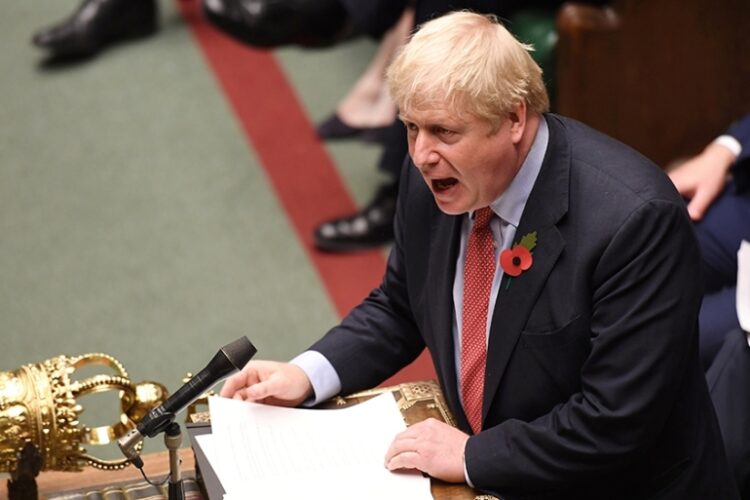The British parliament has backed a study that found former Prime Minister Boris Johnson guilty of lying about his lockdown-breaking parties during the COVID-19 outbreak.
The legislative body supported the report, which was compiled by a parliamentary committee, on Monday, bringing an end to a year-long probe into Johnson.
Last Monday, the House of Commons’ Privileges Committee issued its conclusions, saying that Johnson had purposefully deceived his colleagues when he informed them that all COVID-19 requirements were observed at all times in government facilities.
An advance copy of the study was made available earlier this month, leading him to retire to prevent further disgrace.
The study suggested that Johnson be refused a pass granting him automatic access to Parliament and that he be suspended from the House for 90 days if he had not already resigned.
After a five-hour debate, House members voted 354 to 7 to uphold the committee’s report. The ruling does not preclude Johnson from running for re-election to the House of Commons, but it is seen as an unpleasant penalty for a politician who was prime minister a year ago.
Johnson was Britain’s prime minister from the middle of 2019 until September 2022.
Johnson has described the committee as a “kangaroo court,” claiming that the report was “intended to be the final knife-thrust in a protracted political assassination.”
Most politicians, who spoke at the parliament on Monday, criticized Johnson’s behavior, while a handful of his supporters questioned the impartiality of the committee.
Prime Minister Rishi Sunak, who has promised to restore integrity to the government, said the committee’s bipartisan members had “done their work thoroughly.”
Former premier, Theresa May, warned Johnson’s supporters not to vote against the report, saying doing so would erode the public’s faith in democracy.
Jacob Rees-Mogg, a minister in Johnson’s government, however, said the committee had made a “deliberate attempt to take the most unfavorable interpretation… of Mr Johnson’s activities,” adding that it was “perfectly reasonable” to challenge its views.









